#writers doing research
Text

A Deeper Dive into First Person POV
by @adeptdragonfruit54
What is First person POV more specifically?
First-person perspective is a storytelling technique that narrates the story from the POV of a single character, usually the protagonist but sometimes it can be a side character linked to the protagonist. If it’s the protagonist telling the story, you’ll see the pronoun “I.” In this form of storytelling, the story unfolds through the eyes, internal thoughts, and emotions of the “I” narrator. It’s a very intimate form of storytelling that lets the character speak directly to the reader or even lets the reader feel that they are the narrator. In the “I” form of storytelling, the reader is looking through the eyes of the protagonist directly and experiencing everything without the filter of the author as narrator.
For example:
Consider the last scene in Season 2 of Good Omens on Amazon Prime when Aziraphale turns his head away from Crowley to hide his emotions/tears. Let’s write that in first person and then third person.
First person POV Aziraphale: “You idiot, we could have been us,” Crowley said to me. Words jammed in my throat and creased my brow as I looked my companion of many long years. A half motion toward him and a half motion away repeated several times indecisively made my body rock back and forth. Hot tears welled in my eyes. Finally, the waves of emotion became too unbearable. I turned my face away quickly to stifle the cry of pain that threaten to break from my throat as a single tear rolled from the corner of my eye. But as quickly as the tear could slip from my eye, I heard Crowley’s light footsteps cross the space between us and felt him grab the lapels of my jacket. And then his mouth was on mine, hot and demanding an answer; demanding that I understand what he was trying to say.
Third Person POV: “You idiot, we could have been us,” said Crowley. He paused a moment, hoping for some affirmative response, or any response from the angel. Aziraphale looked at him with a creased brow, his shoulders rocking first toward the demon and then away as if undecided which way to move. Crowley watched this indecisive little movement, hoping against hope that his angel would decide to move to him in the end, but his hopes were dashed when Aziraphale simply turned his head away and refused to look at him further or to speak. Then, in one final, desperate act, Crowley closed the space between them. He latched onto Aziraphale’s collar and kissed him, trying to communicate all his love and need and desperation into that one single human act. He demanded with his lips that Aziraphale understand everything that words had failed to convey. He hoped for a Vavoom.
Advantages of first person
The most obvious advantage of using first person POV is that it establishes an immediate rapport between the reader and the narrator and lets the reader form a deep connection with the character. You can really explore a character’s growth and viewpoints throughout a story using this perspective. Second, it can lend the story credibility which if you’re going for the angle of an unreliable narrator can be useful for misdirection. The trust between a first-person narrator and reader can be built by using a narrator who lies and then later broken when the truth is revealed. Another big advantage of narrating in the first person is that you can express an opinion. A great example of this is To Kill a Mockingbird. The narrator is six-year-old Scout and the opinions being explored are bias and racial prejudice in the American south. Finally, as a writer, you can also use multiple first person POVs to express different character views and opinions and tell the story from many viewpoints. This can be an interesting tool for building intrigue in the story if each person telling it only knows part of the story at any given moment.
Continue on AO3
#good omens#scribblers of soho#writer stuff#new writers corner#writers doing research#writerscommunity#creative writing#writing#writers toolbox
5 notes
·
View notes
Text
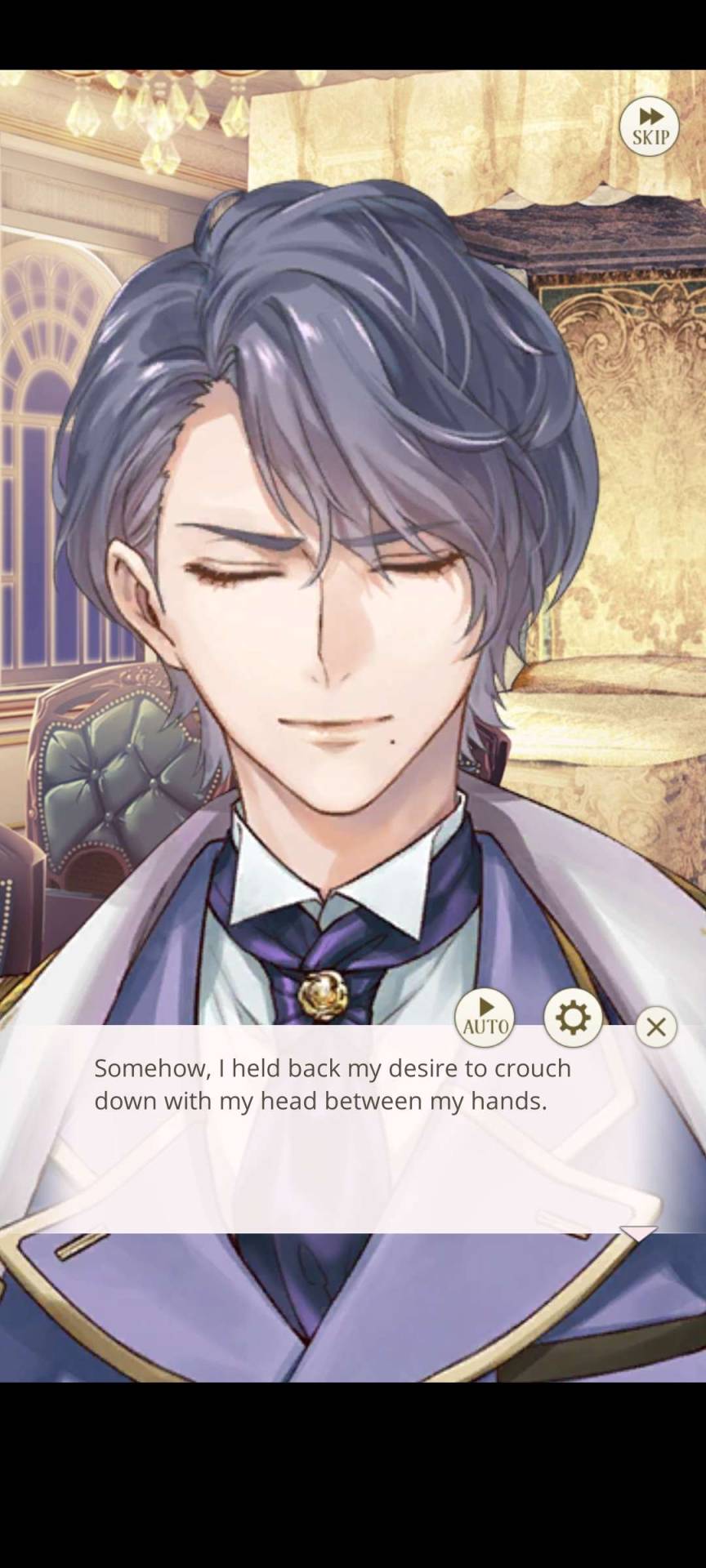
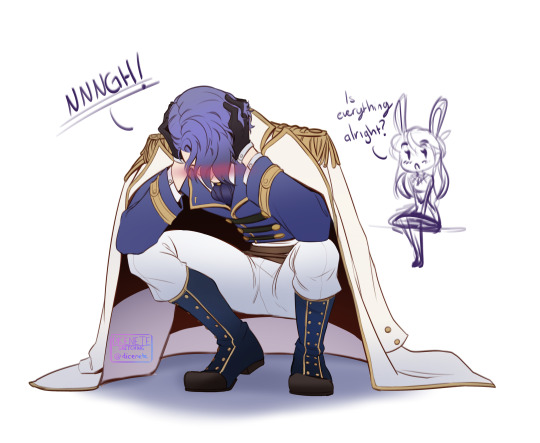
So what if he didn't have the self-discipline? I just thought how cute it is, he simping for MC so hard. Amount of self-control Clavis has is admirable.
I think this was from Beast in Heat event? Or maybe it was the AU event where Clavis was a phantom thief? Don't remember anymore xd
IkePri Tag Team:
@scummy-writes @goustmilk @solacedeer @m-mmiy @mxrmaid-poet
@pawnkyyy @ludivineikewolf @violettduchess @floydsteeth @wistfulwanderingone
@sh0jun @lorei-writes
#digital art#fanart#ikepri#ikemen prince#clavis lelouch#ikepri clavis#ikepri clavis lelouch#I just wanted to draw something funny#And I might replay clavis's route again after Keith#for research#since I got an idea for a story#I'm not much of a writer#but I do have story ideas#But maybe I could try to write a fic#but I'm scared ngl
519 notes
·
View notes
Text
Do Your Research
This phrase is regularly thrown around writeblr and for good reason. It's important to research what you are writing about to know what to include, what can be fudged, and how to depict whatever you're writing. I see "do your research" most thrown around by well-meaning and highly traditionally educated writers. It's solid advice, after all!
But how do you research?
For those writers who don't already have the research skills necessary to write something comfortably already downloaded into your brain, I put this guide together for you.
Where do I even start?
It's a daunting task, research. But the best place to start is with the most basic, stupidest question you can think of. I'm going to talk about something that I already know a lot about: fighting.
When researching fight scenes, a great way to start is to look up what different weapons are. There are tons out there! So ask the stupid questions. What is a sword? What is a gun? How heavy are they?
Google and Wikipedia can help you a lot with these basic-level questions. They aren't great sources for academic articles, but remember, this is fiction. It doesn't need to be perfect, and it doesn't need to be 100% accurate if you don't want it to be. But knowing what is true to life will help you write well. Just like knowing the rules of writing will help you break them.
You may find in your basic research sweep that you have a lot more specific questions. Write them all down. It doesn't matter if they seem obvious. Write them down because they will be useful later.
How To Use Wikipedia Correctly
Wikipedia is a testament to cooperative human knowledge. It's also easy to edit by anonymous users, which means there is a lot of room for inaccuracies and misleading information. Wikipedia is usually pretty good about flagging when a source is needed or when misleading language is obvious, but Wikipedia itself isn't always the most accurate or in-depth source.
Wikipedia is, however, an excellent collection of sources. When I'm researching a subject that I know nothing about, say Norse mythology, a good starting point is the Wikipedia page for Odin. You'll get a little background on Odin's name and Germanic roots, a little backstory on some of the stories, where they appear, and how they are told.
When you read one of the sentences, and it sparks a new question, write the question down, and then click on the superscript number. This will take you directly to the linked source for the stated fact. Click through to that source. Now you have the source where the claim was made. This source may not be a primary source, but a secondary source can still lead you to new discoveries and details that will help you.
By "source-hopping," you can find your way across the internet to different pieces of information more reliably. This information may repeat itself, but you will also find new sources and new avenues of information that can be just as useful.
You mean I don't need a library?
Use your library. Libraries in many parts of the US are free to join, and they have a wealth of information that can be easily downloaded online or accessed via hardcopy books.
You don't, however, need to read every source in the library for any given topic, and you certainly don't need to read the whole book. Academic books are different from fiction. Often their chapters are divided by topic and concept and not by chronological events like a history textbook.
For example, one of my favorite academic books about legislative policy and how policy is passed in the US, by John Kingdon, discusses multiple concepts. These concepts build off one another, but ultimately if you want to know about one specific concept, you can skip to that chapter. This is common in sociological academic books as well.
Going off of my Norse Mythology example in the last section, a book detailing the Norse deities and the stories connected to them will include chapters on each member of the major pantheon. But if I only care about Odin, I can focus on just the chapters about Odin.
Academic Articles and How To Read Them
I know you all know how to read. But learning how to read academic articles and books is a skill unto itself. It's one I didn't quite fully grasp until grad school. Learn to skim. When looking at articles published in journals that include original research, they tend to follow a set structure, and the order in which you read them is not obvious. At all.
Start with the abstract. This is a summary of the paper that will include, in about half a page to a page, the research question, hypothesis, methods/analysis, and conclusions. This abstract will help you determine if the answer to your question is even in this article. Are they asking the right question?
Next, read the research question and hypothesis. The hypothesis will include details about the theory and why the researcher thinks what they think. The literature review will go into much more depth about theories, what other people have done and said, and how that ties into the research of the present article. You don't need to read that just yet.
Skim the methods and analysis section. Look at every data table and graph included and try to find patterns yourself. You don't need to read every word of this section, especially if you don't understand a lot of the words and jargon used. Some key points to consider are: qualitative vs. quantitative data, sample size, confounding factors, and results.
(Some definitions for those of you who are unfamiliar with these terms. Qualitative data is data that cannot be quantified into a number. These are usually stories and anecdotes. Quantitative data is data that can be transferred into a numerical representation. You can't graph qualitative data (directly), but you can graph quantitative data. Sample size is the number of people or things counted (n when used in academic articles). Your sample size can indicate how generalizable your conclusions are. So pay attention. Did the author interview 300 subjects? Or 30? There will be a difference. A confounding factor is a factor that may affect the working theory. An example of a theory would be "increasing LGBTQ resources in a neighborhood would decrease LGBTQ hate crimes in that area." A confounding factor would be "increased reporting of hate crimes in the area." The theory, including the confounding factor, would look like "increasing LGBTQ resources in a neighborhood would increase the reporting of hate crimes in the area, which increases the number of hate crimes measured in that area." The confounding factor changes the outcome because it is a factor not considered in the original theory. When looking at research, see if you can think of anything that may change the theory based on how that factor interacts with the broader concept. Finally, the results are different from the conclusions. The results tell you what the methods spit out. Analysis tells you what the results say, and conclusions tell you what generalizations can be made based on the analysis.)
Next, read the conclusion section. This section will tell you what general conclusions can be made from the information found in the paper. This will tell you what the author found in their research.
Finally, once you've done all that, go back to the literature review section. You don't have to read it necessarily, but reading it will give you an idea of what is in each sourced paper. Take note of the authors and papers sourced in the literature review and repeat the process on those papers. You will get a wide variety of expert opinions on whatever concept or niche you're researching.
Starting to notice a pattern?
My research methods may not necessarily work for everybody, but they are pretty standard practice. You may notice that throughout this guide, I've told you to "source-hop" or follow the sources cited in whatever source you find first. This is incredibly important. You need to know who people are citing when they make claims.
This guide focused on secondary sources for most of the guide. Primary sources are slightly different. Primary sources require understanding the person who created the source, who they were, and their motivations. You also may need to do a little digging into what certain words or phrases meant at the time it was written based on what you are researching. The Prose Edda, for example, is a telling of the Norse mythology stories written by an Icelandic historian in the 13th century. If you do not speak the language spoken in Iceland in 1232, you probably won't be able to read anything close to the original document. In fact, the document was lost for about 300 years. Now there are translations, and those translations are as close to the primary source you can get on Norse Mythology. But even then, you are reading through several veils of translation. Take these things into account when analyzing primary documents.
Research Takes Practice
You won't get everything you need to know immediately. And researching subjects you have no background knowledge of can be daunting, confusing, and frustrating. It takes practice. I learned how to research through higher formal education. But you don't need a degree to write, so why should you need a degree to collect information? I genuinely hope this guide helps others peel away some of the confusion and frustration so they can collect knowledge as voraciously as I do.
– Indy
#writing advice#writing tips#writing resources#writeblr#amwriting#writblr#writers of tumblr#writers on tumblr#writing help#writing guide#how to research#reading research articles#do some research#do your own research#do your research#research for writers#writing research#writing tip#writing reference#writer tips
2K notes
·
View notes
Text
What do you mean the irl Edogawa Ranpo was gay. What do you mean he traveled with his boyfriend researching the history of homosexuality in Japan. What do you mean they had a competition on who could find the most books about gay sex. WHAT DO YOU MEAN-
#what do you mean he was inspired by and slightly attracted to Edgar Allen Poe and chose the pen name Edogawa Ranpo after him#what do you mean he told his middle school crush that he wanted to eat him platonically#what do you mean he finished and published the rest of his boyfriend's work on the history of gay after he died#what do you mean i haven't slept because ive been researching gay mystery writers#bsd irl#edogawa ranpo#bungou stray dogs#bsd#ranpoe
2K notes
·
View notes
Text

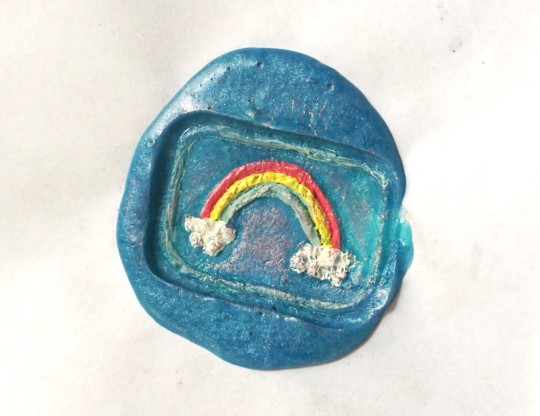
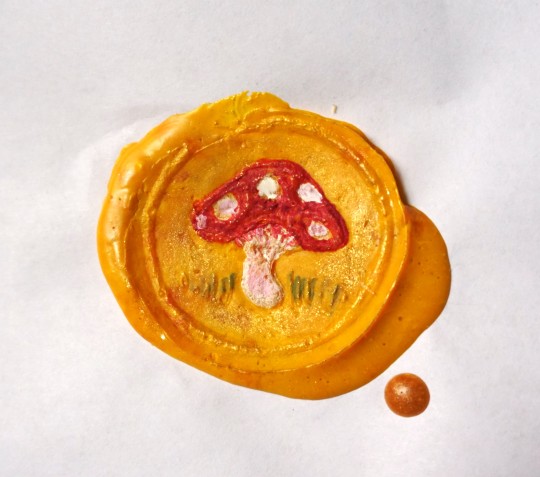
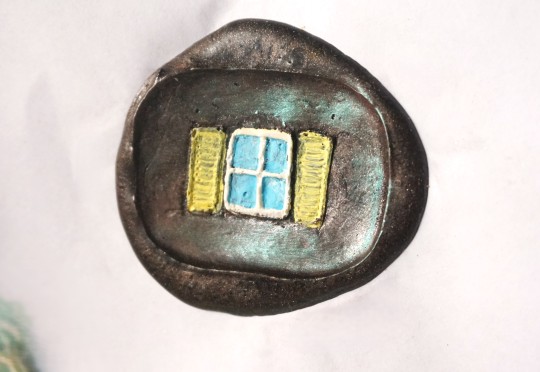



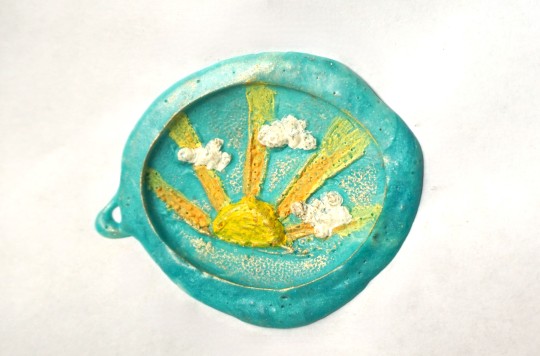

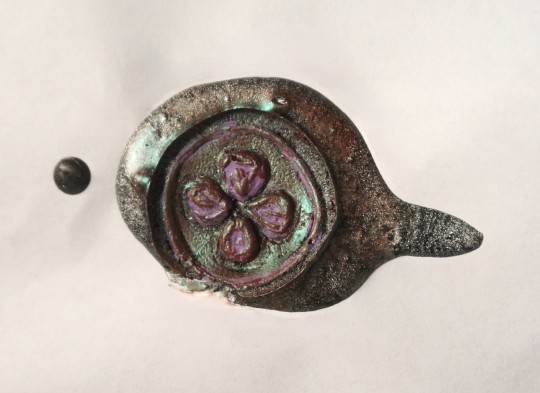

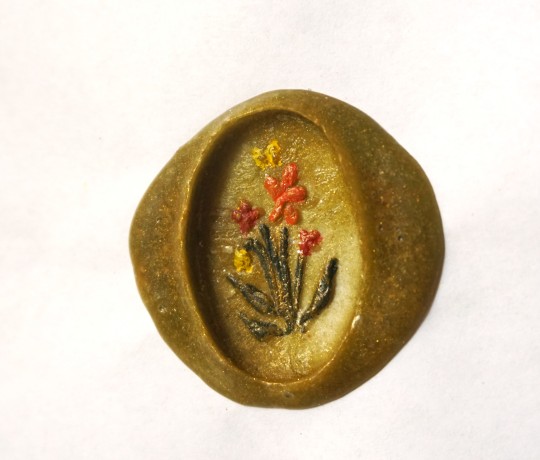

I made a few new wax seal stamps out of clay (like the ones I did for my worldbuilding stuff forever ago), this time just of random symbols that I thought might look good done in the style of painting over the raised part of the wax or etc. :0c Some of them aren't carved deep enough to really show up that well, but overall they worked okay for being clay lol
#wax seal#crafts#wax stamp#stationery#Window one is kind of stinky.. I was imagining like a swirly night sky sort of looking thing so it would be a surreal contrast of a night#sky with a window in the middle that shows a daytime sky - but the silver and purple wax kind of mixed too much together#with the black and it just looks very plain black and not all that starry or anything hjbhj.. Of course the eye is probably my favorite#since all I ever do is draw eyes and still like eye imagery for some reason. The four leaf clover is very lumpy and skrunkty but also it wa#the smallest in size out of all of them so was easier to do multiple stamps of just to try it out.#The heart with eyes wax is actually more swirly in person. I wanted it to be a mix of light pink and red and white. and the wax#did kind of all blend together but in person you can definitely see MORE of the intentional swirlyness. in this it just looks plain pink.#I was going to do one eye in the heart but it looked weird. but now two seems too plain. i could have done 3?? in a pattern.. hmm#alas. I wish I could make actual metal ones. With the clay i have to paint them in a thin layer of olive oil before stamping because#otherwise the wax just kind of gets stuck in the grooves of the clay and then you can't pull it up. Very wacky ''unprofessional'' looking#set up where I'm hot gluing circles of sculpey clay to short stumps of a wooden dowel that I sawed apart with a serrated bread knife#and then using an old paintbrush to put olive oil on them whilst holding a spoon over a yankee candle flame hjbjh#ANYWAY.. I think if I were middle class/rich/etc. this would be one of the main things in my crafting room is like.. SO many colors#of wax. and all different custom made stamps designed by me. which could be much more elaborate in actual metal.. muahaha.... >:)c#RHGghhh... I actually don't want to talk much about it since (this is probably just my Obsessed With My Own World Artist Delusions) I#think I have a really cool idea for a game that could genuinely be successful if i ever get to make it and I don't want to give#everything away and spoil the whole plot/concept in hopes that one day I can actually do it - BUT - a game that I'd like to make after the#visual novel I'm making now has partially to do with the main character working as a sort of writer/scribe/artist assistant in an elven#city (set in my world/with my worldbuilding species and versions of elves and etc) and I was thinking of maybe incorporating#somehow being able to collect little writing type items like these like.. you can get different wax seal patterns or pens or etc. when I do#stuff like this in Real Life it always makes me think of that like.. ouh... this is good research.. what it shall be like to be a littol#elf collecting wax seals and such.. indeed... GRR i need to be finished with my current game NOWWW... i MUST work on other#thingss... aughh... ANYWAY.. yay. accomplishment to do One Single Thing other than Sit In The Summer Heat And Rot#though also hilarious as this was the first cool-ish day that was below 80F in a while hgvh#waking up like 'wow.. i actually feel okay today?? like I could do things?? how mysterious.. I wonder why..?? :0'' Its The Weather You Fool#Tis Always The Weather
153 notes
·
View notes
Text
A rule of thumb I go by as a fic writer, in order to stop myself falling down a research rabbit hole and going mad, is to ask myself "is this how this would work in canon?" before I ask myself "is this how this would work in real life?".
For example. Say I'm writing fic about a crime drama. And I'm like "would this stab wound kill actually someone?". Often times in real life the answer is no. But in the show? It absolutely would, unless it was more dramatic for them to be just fine.
And sometimes it goes the other way, a main character is hospitalised and has been unconcious for several days but I want them to get up immediately and be able start fighting baddies again straight away. Would that be possible in real life? Of course not. But would that happen in the show? Probably, yeah.
#basically bottom line never feel compelled to do more research and be more tied to realism for free than the original writers got paid to do#I mean if you LIKE doing research and being realistic then that's fine too but just don't stress about it
307 notes
·
View notes
Text
Being a writer is 10% writing and 90% falling into rabbit holes about architecture and the history of toilets
#I spent 3 hours researching last night and only 1 doing actual writing#help me I have to learn French#writing#writers#storytelling#funny#inspiration#artists on tumblr#author#writers on tumblr#writer#art
645 notes
·
View notes
Text
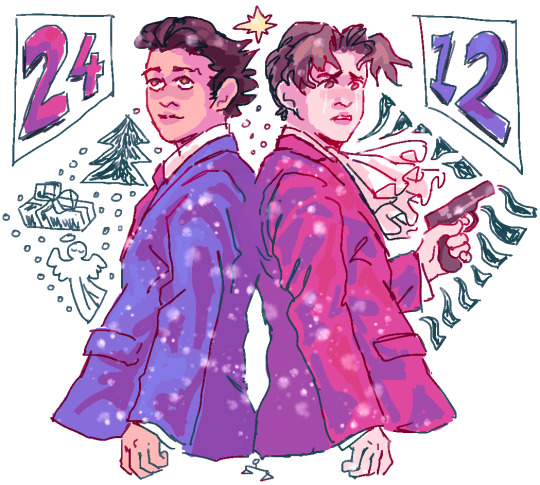
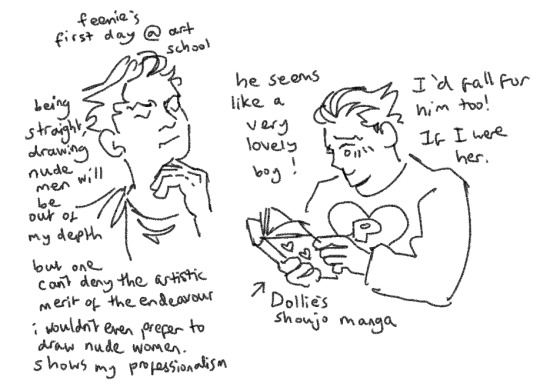
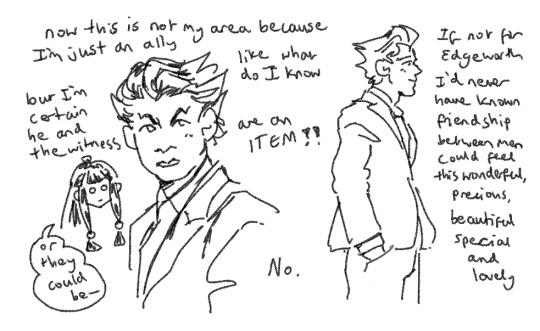
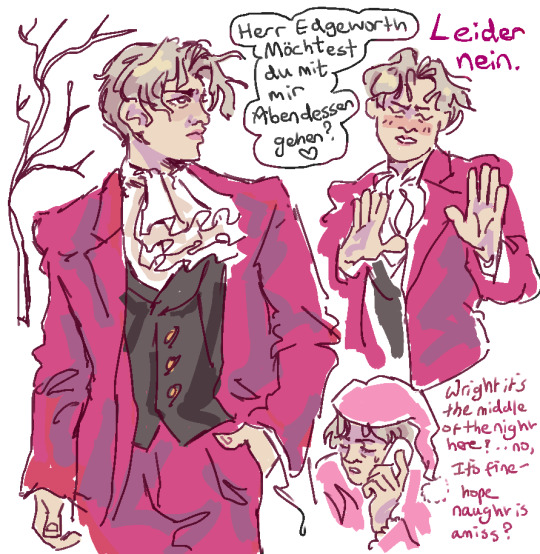
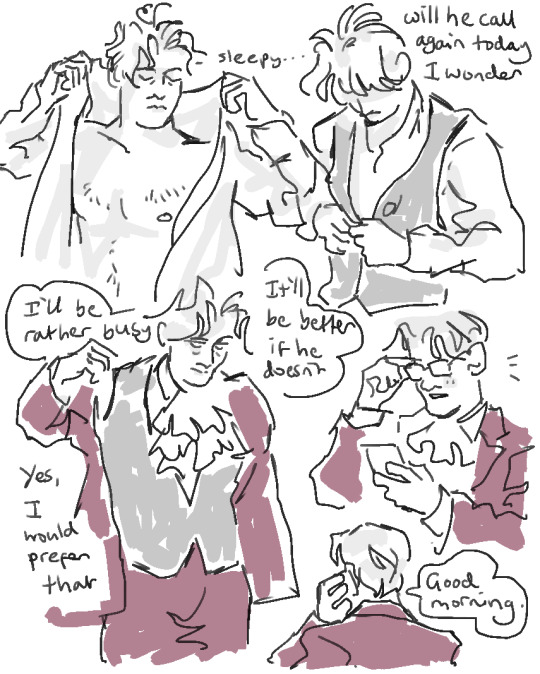
hehe. almost christmas!
#ace attorney tag#narumitsu#partial nudity /#2nd and 3rd things inspired by playing the first game and Uhh... why is phoenix accusing men of being lovers and being certain of it#and just generally containing the core of bisexuality within him#also there's that part i recall in maybe the..3rd game? where he's like Wow.. I'd Fall For Him Too... about that cinnamon swirl looking man#learnt lately that the writers upon learning that ace attorney was very popular with BL people immediately started reading BL#to understand the genre. i think phoenix would also do such Research in college. to Learn About People. About The World.#so now he feels that he has gaydar and is a good Ally etc. But actually maybe...you're also just bi too !#too bad you'll have to get kissed by a criminal to work that out! Hang in there <3#i reread my fic today !! I'm in the christmas mood now ! Sort of ! ooooh the 7 year gap.. at least we are in the 7 year gap years irl#Somewhere out there they ARE drinking wine romantically gazing at snow on a balcony in germany. thank GOD for that fr#so i shall be drawing things from THAT era next i need to depict men finally kissing NOW !!!!!!#can't do it with orufrey..can't draw cute happy romantic wintry art of them..didn't finish processing my current divorcecore arc era cycle
329 notes
·
View notes
Text
In which impulses are revisited
#the barking writer#redstone and skulk#tangotek#tanguish#impulsesv#woah what character spoilers in the tags oh boy#got to do some research on deepfrost citadel for this one#the timeline in RnS is very fuzzy and I had to do some serious squinting and revisiting season 9 to figure out how much Tango had built#i still think i'm probably wrong but it is 1am and i am going to bed continuity be damned#if there are more spelling / grammer issues in this chapter than normal it is because i'm exhausted and my brain is fried#<- spoken with love and affection obviously if i cared that much i would've slept instead#anyway have another fucking ungodly long chapter from me the writer who doesn't know how to shut the hell up#6k words babeyyyy
62 notes
·
View notes
Text
the best thing about reading fics on ao3 is following the accounts tumblr blog. it’s like seeing the bts of a tv show
you’ll have the most beautifully written piece of literature ever and the author is advertising it on their blog by saying “here’s some shit i wrote at 3am cause the idea wouldn’t leave my head, anyway hope someone enjoys my horny thoughts lol”
you get to see updates on your fav fics and if the author has any new works in progress. it’s exciting!
#also ao3 authors need to be more confident about their fics#it took u weeks to plan and write so u are able to say that it is a masterpiece to u and fuck what anyone else thinks#they do not get enough credit for the research (although sometimes unnecessary) that they do so the fics are as accurate as possible#fic related#ao3#ao3 writer#ao3 fanfic
178 notes
·
View notes
Text
prompted by a baffling conversation with one of my friends + overall trends with events like big bangs. apparently i am deeply underestimating the amount of, like, actual consumption crossover between fanartists and fanwriters. i've been operating under the assumption that the majority of fanartists don't read fanfic and that fanfic is a relatively niche thing mostly shared between fanwriters with a few outlier exceptions. like, that the "communities" or w/e are relatively separate??
this is possibly because i've been out of "fandom" for a few years (or bc im not on twitter/insta where the artists hang out), but i feel like most of my friends are other fanwriters and most of the people who actively engage with fanfic on tumblr/ao3 are also fanwriters (and vice-versa with fanartists gravitating to each other). however. my friend disagrees? neither of us are actually artists tho so i'm putting the question out to the crowd. (more thoughts) ->
side note: i didn't include an option for being BOTH a fanartist/fanwriter because 1) you're like rare and exotic birds to me 2) i'm trying to figure out who falls into which category based on what community you "identify" with the most. if you write the occasional fanfic but you mostly think about/create fanart, you're a fanartist; if you mostly write fanfic but every now and then will think about/make some art, you're a fanwriter. the group you're more likely to engage with. that kinda thing.
side note 2: you will see i have included an option for fanwriters who don't/rarely read fanfic. i know you exist because that is my category. i read fanfic but do so rarely these days. i'm selective because i dont have a lot of time on my hands. this is possibly another reason why i feel like engagement between fanwriters is so high, because if i'm going to engage with a fanfic i'm gonna put my whole ass into it since that's the kind of engagement that makes me happiest from a writer's perspective.
for reference, when i say "engagement" i'm talking about leaving kudos, comments on ao3, asks/comments on tumblr, tags on reblogs... that kinda thing.
with all of this in mind, this could literally just be because fanfic writers are more willing to engage with other writers bc of their own shared hobby and/or because fanfic writers know what kind of engagement theyd prefer on their own fics and act accordingly--and non-writer/artists are just more willing to engage in general because that's the primary way you participate in fan communities. on the flip side, fanartists might just straight up be a really quiet bunch... possibly because your thing (affectionate) is "visual" more than "verbal" (if that makes sense).
basically... this is exactly what i'd like to know LOL.
#this is mostly abt one piece because i DEFINITELY feel like there was WAY more crossover between artist/writers reading fanfic in homestuck#but that was also literally a decade ago & i feel like theres been a HUGE shift in how people see/are willing to engage w fanfic these days#THIS ISN'T SHADE OR ANYTHING I'M GENUINELY SO CURIOUS#i found out some people i assumed didnt read fanfic at all actually DO and i was BAFFLED#the librarian urge to do research create categories and make lists#spiders loopey is an outlier and should not be counted lfasjlhlhsdfsdhfkjs (kidding ily)#gyro.txt
283 notes
·
View notes
Text
my favorite denning-ism is when he stops in the middle of a paragraph to give the readers a taste of the wikipedia research he did
#like i'm not even really annoyed at this point#it's just like 'oh there he goes again'#at least sometimes he tries to put it in dialogue#to be clear#i'm not knocking writers that research stuff for their books#that is good actually. do that#i AM saying the way he presents it is Bad and Unnatural
35 notes
·
View notes
Text
My Favorite Line In The Show
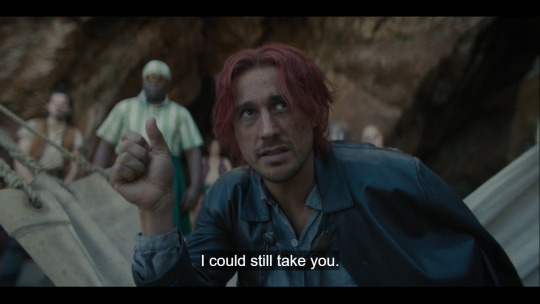
that line with that expression with that hand angle? oh you just know they did it
#and shanks tops#a pleasure dom if i dare to speak#no honestly i'm half joking#i only ship their opla versions a tad#in my defense shanks had no business saying that line LIKE THAT#what was i supposed to do? NOT think they fucked? come on#shanks x mihawk#opla mihawk#opla shanks#one piece live action#i could still take you#shanks i need a demonstration#for research purposes#look all I'm saying is#a boomer didn't write that line#whichever one of us in these hell sites are actually ppl from the writers room#I thank you#And i salute you
158 notes
·
View notes
Text
"Where is my historically accurate hetalia representation of this and that!!!" Babe, I am so sorry to tell you, but history is very complicated and nuanced and layered and you cannot cram every facet and faction of a fraction of time that a population experienced into the cartoon men. Choose one viewpoint, write an essay and be done with it.
#beablabbers#which is again why I like my LFLS and Human AUs#they NEVER represent their country in there. they take inspiration in the broad strokes but they are individuals.#the represent one kind of person of their people that was around at the time. one strain. one human.#and before people are annoying on here - I do trust good historical hetalia writers in this fandom#I trust that they are aware that they have made certain choices and certain readings in their research and decided on certain things#the country angle is extra tricky but it is how each piece of historical fiction is an interpretation#human au or not all MY historical AUs are an interpretation of my sources!!! and me taking some leeway here!!!#that is why we have footnotes in academia so ppl can see where your argument is coming from!!!
158 notes
·
View notes
Text

Ever since I read @a-very-fond-farewell ‘s fic (pls read Lamb Loose!!!) and they touch on the mythology of three-legged crow/Hou Yi/Samjok-o at the back of Doyoung’s jacket MY MIND IS BLOWN 🤯🤯 LIKE IT FINALLY MAKE SENSE!!!
The mythology fits Doyoung’s fate really well, but both Doyoung and Dongsoo are two sides of the same coin so I’d like to interpret it in a way that it affects him as well. Dongsoo shot him down, but he too turn into a three-legged crow 😔
#I’m pretty sure the director + writers of Evilive put that legend into account bc THERE’S NO WAY ITS A COINCIDENCE#NIKI YOUR RESEARCH IS CHEF KISS#I WOULDNT HAVE KNOWN WITHOUT YOU#I’ve always associated DY with wings without even realising how close to canon it is#it’s not ooc after all#also HELLO NIKI I SAW U MASS REBLOGGING I ENJOY READING YOUR TAGS#ok time to sleep fr#I will post my art here more often#evilive#biography of a villain#악인전기#도영동수#dyds#seo do young#han dong soo#fifi’s art#shhhsoftnwet
48 notes
·
View notes
Text
At 3am last night, unable to sleep with my brain working over time thinking about solutions to my woes, I chatted to a dear friend (on a different time zone), about life, about the matrix, about control and about fear.
I was trying to convey my anger and frustration at being forced to participate in a system I despise with all my might. Made to abide by laws and regulations that vividly confirm what we are; slaves.
As we know all too well, the world is captured by an evil force that wishes only to spread fear and misery upon us and they keep ‘shaking the jar’ to keep us in confusion, conflict and chaos. When you are aware of the truth, it makes it even harder to continue playing the game.
I don’t want to play the game, I’m done with their system, I’m through with their rules, doctrines, laws and regulations. I will live in obedience and alignment with God’s law, with a clean conscience and an open heart. So take everything you want from me, in the end, I will always win, for you cannot take my spirit.
The physical me, my ‘avatar’ in this weird, twisted game, might be forced to continue playing until we collectively destroy the matrix once and for all, but now that I am connected to my higher self in a way I had never experienced before, I can sit back and watch the game for what it is; an illusionary trap created to capture our perception to the point of self-denial.
Well, I for one, know everything that I am, which by definition makes me invincible, so bring it on!
My avatar will have to waste energy dealing with the game, but the ALL of me will simply watch in the knowing that at the end of the day, it’s all an illusion. What is true and real, is everything they will never be able to take away from me. 🤔
- Laura Aboli
#pay attention#educate yourselves#educate yourself#knowledge is power#reeducate yourselves#reeducate yourself#think about it#think for yourselves#think for yourself#do your homework#do your own research#do some research#do your research#ask yourself questions#question everything#writers on tumblr#thoughts of a midnight thinker
21 notes
·
View notes